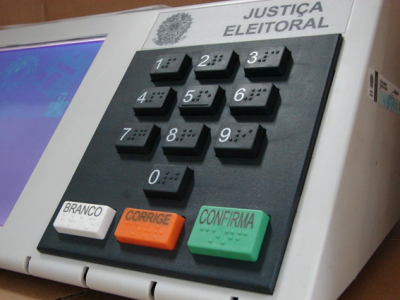


Responsible researcher: Adriano Valladão Pires Ribeiro
Article title: INTRAPARTY ARTICULATIONS AND ELECTORAL PERFORMANCE IN BRAZIL
Article authors: George Avelino, Ciro Biderman and Leonardo S. Barone
Location of intervention: Brazil
Sample size: 266 municipalities
Major theme: Economic Policy and Governance
Type of Intervention: Impact on votes for deputy of having elected a mayor in the municipality in the previous election
Variable of Main Interest: Proportion of votes for the party
Evaluation method: Discontinuous regression
Policy Problem
A nationally popular politician would be able to direct votes to local candidates in elections, but how important would local politicians be in being able to influence voters to choose a certain candidate at another level of competition? More specifically, what is the influence of a mayor in being able to impact state legislative elections in favor of his party? This relationship will certainly depend on party articulation and organization capacity.
Assessment Context
For the party of an elected mayor to have a potential advantage in the next state election (which takes place 2 years after the local elections) its organization must be well articulated, otherwise the candidacies would be handled in an isolated and individual manner. Electoral planning will depend on party structure and administration, especially its degree of centralization. On the one hand, centralized parties would have a national leadership responsible for the entire organization and would make decisions on recruiting local leaders, selecting candidates and coalition strategies. On the other hand, decentralized parties would give local leaders more autonomy to define strategies and negotiate coalitions.
In Brazil, the structure of federalism recognizes the political sovereignty of municipalities and gives mayors the authority to implement some public policies, with emphasis on education and health. Given this importance, the municipal level becomes a key player in the electoral dispute and culminates in a more decentralized party structure. Although there is an intra-party hierarchical order between the national leadership, state leadership and municipal leadership, municipal conventions have a high degree of autonomy regarding recruitment, selection of candidates, definition of policies and coalition strategies. This motivates the exploration of the issue of the importance of local leaders in more general elections.
Intervention Details
The influence exerted by mayors in state elections would be a sign that there are intra-party articulations in Brazil and would also highlight the importance of local leaders. This idea contrasts with the intuition of national influence over local structures and the unanimity of higher directorates over regional ones. Avelino et al . (2012) explore this issue based on the results of the 2008 municipal and 2010 state elections in Brazil. First, the candidates for mayor are filtered to isolate only the two most voted, excluding municipalities with a second round and with only one competitor. Second, the proportion of nominal and party votes for the candidates for state and federal deputy from the parties of the two mayoral candidates selected by the first procedure is added. Using the proportion of votes for deputies in 2010, along with some characteristics of the municipalities and the victory margin of mayors in 2008, the desired effect can be measured following the explanation below.
Methodology Details
To isolate the political effect of the mayor in the elections for deputy, it would be enough to compare the difference in the proportion of votes when the same candidate won and lost the elections for mayor, with the difference then being counted as the influence of the mayor. In practice, however, only one of the results (victory or defeat) is observed in elections. Therefore, a new comparison parameter must be found and this is done by considering only the municipalities in which the mayor's margin of victory in 2008 over the second place candidate was small.
The idea behind the argument is that parties with similar electoral performance would have similar influence in the municipalities, that is, when the difference in the margin of victory is small, it is assumed that the election was defined by random factors in voter behavior. Thus, in these municipalities the influence of the two filtered parties would not be so distinct from each other and the difference in the proportion of votes for deputy would be caused by the mayor. Therefore, the treatment group is made up of the victorious party in each municipality in the 2008 mayoral elections and the control group is the party that came in second place.
Results
The mayor's political effect was measured for victory margins less than 5%, 3% and 1% and for each of these exercises the number of observations was 1374, 823 and 266 municipalities, respectively. Even with the variation in the victory margin and observations, the result of the mayor's political effect was similar in all measurements, remaining between 3.4% and 4.28%. In other words, having won the elections for mayor implies a higher proportion of votes for deputies from the mayor's party in that municipality when compared to votes for the party of the candidate who lost the municipal elections.
Public Policy Lessons
The study presented provides some lessons. First, it appears that the political effect of the mayor is positive, that is, the parties that elected mayors in 2008 had an advantage in the elections for deputy in 2010. If there were no intra-party coordination, having an elected mayor would have no relationship with the votes from other spheres of government, that is, this result highlights both the existence of relationships between the different levels of the party organization and an active role of the mayor in supporting his party in the school elections.
Reference
Avelino, George; Biderman, Ciro; Barone, Leonardo S. “Intraparty articulations and electoral performance in Brazil.” Data, vol. 55, no. 4, p. 987-1013, 2012.
